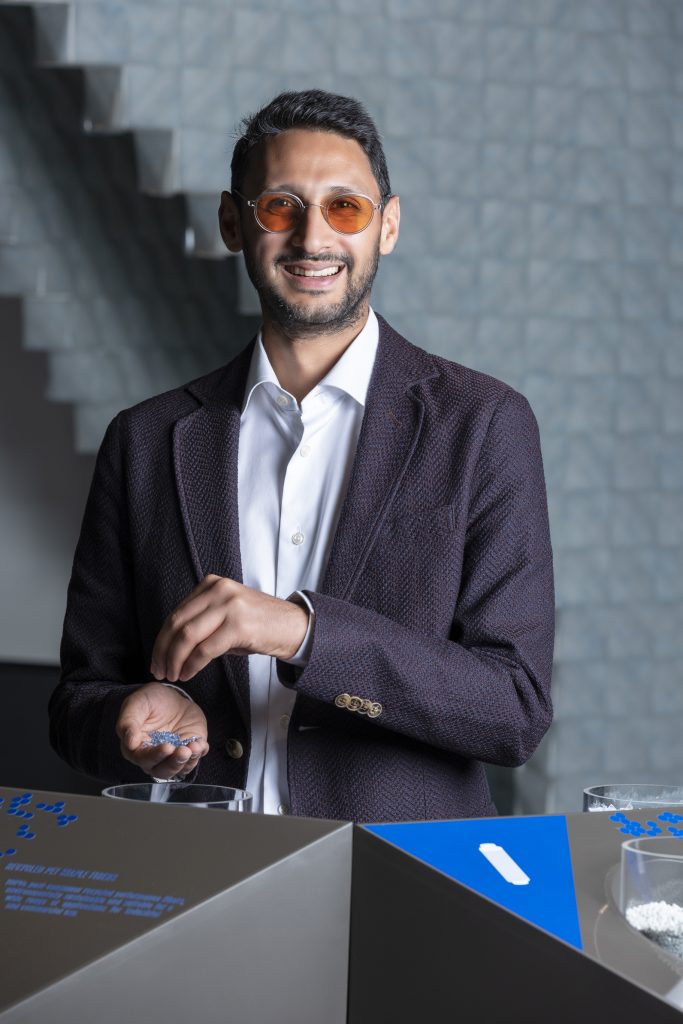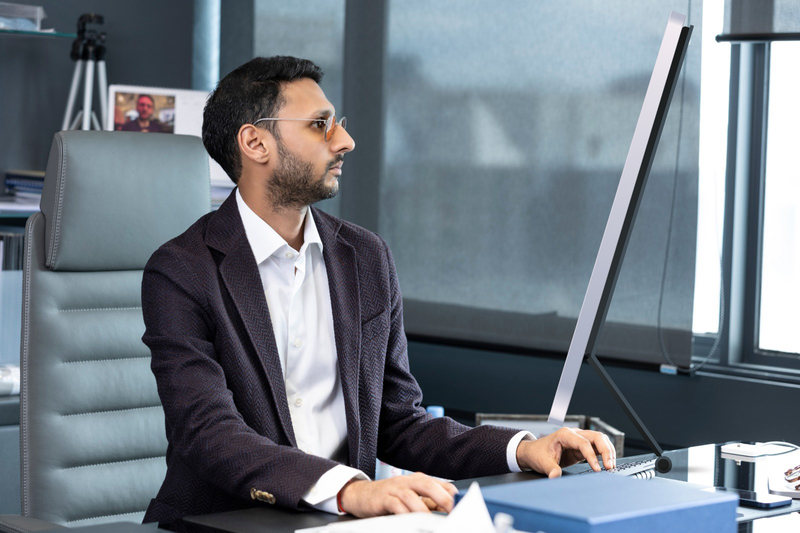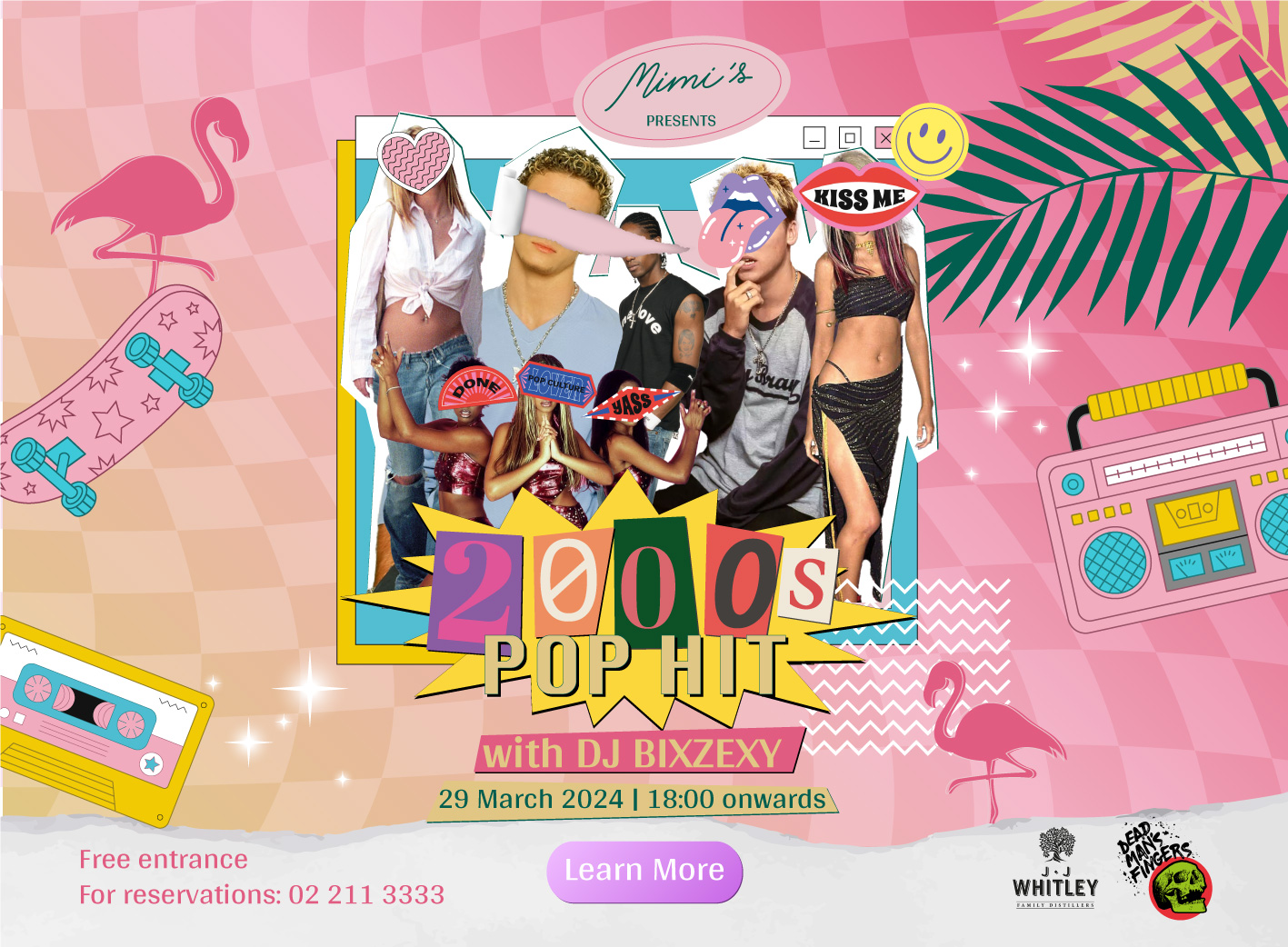The Chief Sustainability Officer of Indorama Ventures talks about the Green Dream.
By Nishaa Bhojwani
On a sunny Monday morning, Yashovardhan‘Yash’ Lohia greets us with a cheery smile as we meet him at his office, Indorama Ventures Limited (IVL).Tall, slight, and soft-spoken, the 33 year-old is the Chief Sustainability Officer (CSO) for the organisation, a role appointed earlier this year and one that he feels passionate about as the agenda is close to his heart.
Founded in 1995, IVL is one of the world’s leading manufacturers of PET resin, a completely recyclable raw material that has a wide variety of applications, though it is most commonly used in the packaging of food and beverages. “As the world’s largest PET producer, we feel we have a responsibility not just to our customers, but to the environment, to see that all the bottles our resin goes into get collected back and repurposed,” he says. His ultimate goal: to get consumers to trust plastics once again.
Although his family has been based in Thailand since the late 80s, Yash had a more international upbringing, attending boarding school in England from a young age and thereafter earning a degree in engineering from Warwick Business School. Growing up, he says, dinner conversations were always about IVL, which, at age 10, he found boring to listen to every night. Even so, he never doubted that he would join the family business someday, and these days, he couldn’t be more passionate about his current life path.
Masala sat down with Yash to chat about life in a pandemic year, and much more.
It’s been quite a year! How is IVL handling the pandemic and how has it been impacted?
IVL, like any other company, was definitely tested this year but in the end, we found that 70 percent of our businesses have been resilient to the pandemic. Our PET sector saw a surge in sales as people stocked up during the lockdowns and our hygiene line saw full utilisation rates as consumers became more health conscious. Earlier in the year, we started doing daily catch-ups with senior executives around the globe to assess the impact on our operations in all six continents, not just financially but also to focus on the health of our employees. We also set up a COVID-19 fund of USD 2.5 million to support the communities around our factories as a way of showing our solidarity during this difficult time.
Can you share with us a little about the direction the company is taking towards sustainability?
Contrary to what people may think, we have always taken sustainability seriously and are now aiming to ramp up our efforts even further. Because PET plastic is fully recyclable and can be repurposed into different materials, its environmental impact is significantly low in comparison to glass or aluminium. Not only is the overall carbon footprint lower, but due to the light weight of the material, its manufacturing footprint is lower as well. We have undertaken a huge commitment to help recycle as many bottles as possible. Today, we recycle about 15 billion bottles a year globally and our goal is to reach 50 billion bottles a year by 2025. We have set ourselves aggressive targets in an attempt to become industry leaders in this space. This year has been the test to see where investors prefer to invest, and companies with a high sustainability ranking have seen growth in share price whereas companies with low rankings have seen negative growth, across all industries. Preservation of the environment is not just a passing trend, it’s a top of mind issue for people of this generation, including myself.
What are some of the most difficult issues that need to be tackled in order to see results?
The key to further progress is ensuring that consumers understand the value of PET bottles to eradicate the perception that they are cheap single-use polluters. Educating consumers that an empty bottle can have another life in another product is no easy task, but ultimately vital to changing consumer behaviour to recycle as if it were second nature. We certainly have a long way to go, but I take the mission very seriously, and personally spend a lot of time on education.
Another factor is that companies cannot act alone in making the shift towards a sustainable future – governments too need to step in and make plastic recycling a priority on their end, which we are now starting to see in a big way, especially in more advanced economies. For example, in Germany, 98 percent of PET bottles are recycled every year as a result of government programmes that encourage a ‘circular’ economy for plastics through financial incentives. Such systemic changes would drive further adoption of sustainable materials and ultimately result in reduced leakage of waste into the natural environment.
We know you are in this for the long run, but what do timelines look like in terms of bringing about big-impact changes?
This year we have revamped the sustainability organisation within IVL which includes setting up two committees, one for emissions from within the plant, and one for energy bought from outside the plant.
Through this we hope to be able to continually identify areas where we can reduce carbon emissions every step of the way without getting complacent. We have a target to achieve 25 percent renewable energy of total power consumption by 2030 and at the same time, we’ve pledged USD 1.5 billion towards meeting our environmental targets. It’s safe to say that we have our work cut out for us!
Working in any family business has its challenges – your boss and father also happens to be one of the most successful men in the country. How was it for you coming into the job?
When I first joined in 2013, I was eager to learn, absorb, and earn my place, but the excitement took longer to come than expected. Initially, I took an opportunity to set up our first manufacturing plant in the Philippines. Having graduated with an engineering degree, it seemed like the right fit for me. I spent six months in the Philippines and successfully built a packaging plant to serve our brand customers. Although it made me proud to see the impact of all the work put into the project, I felt like I was living in the shadow of other colleagues, due to my limited experience and expertise in that particular field. I was this new 25-year-old kid coming into the family business. I knew the older team members were wondering, ‘How much experience does he have?’ but I really wanted to earn the trust of the senior executives.
Fast forward to 2018, I joined the fibre division in order to better understand its processes and products, and so that I could be the most knowledgeable member of the family in this newly-acquired area. Still, I felt as though I hadn’t found my optimal place yet. It was only in the summer of 2019, when plastics became a contentious news headline, that I decided to run our recycling department. Before this, it was not given enough attention. We decided to prioritise recycling and turn it into a standalone vertical. This was my breakthrough. I was finally able to become an expert in a field within IVL and apply my knowledge towards solving challenging issues. Today, I am proud to say I am responsible for sustainability at IVL. We are aiming to push ourselves into the frontier of companies that are truly going to make a difference for generations to come.
How have your personal experiences shaped you and the decisions you make at work?
My personal experiences start with my upbringing – the biggest lesson I learnt from my parents in my childhood was the importance of humility. This, and many other values which I have adopted through my family, allowed me to be a curious child that enjoyed exploration. I’ve always liked to experience new things, learn about different cultures, and often find myself in situations that are unfamiliar.
These are the qualities that allow me to now easily connect with people, collaborate with different teams, and attempt to come up with creative out-of-the box solutions.
Does being the boss’ son make your job harder or easier?
Easier, because I was given the opportunity to explore different career paths within IVL until I found my niche. I am lucky that throughout these years, my father always mentored, guided, and helped me discover my strengths. In some regards, it is harder because I know people are watching me; how I lead and the decisions I make are under a limelight. I therefore do feel the pressure from time to time, but that comes with the territory and I’m able to handle it.
Who are some of the most interesting people you’ve met and why?
Lakshmi Mittal and Bill Heinecke. The former, whom I’ve met several times, comes across as someone with a lifelong sense of curiosity who always wants to learn. That’s a quality I would always like to have. The latter I picked because even though he works extremely hard, striving to grow his businesses and network, he remains true to himself and still makes time for his interests and hobbies, many of which he developed years ago.
What are the silver linings that have come out of this year for you? Any new hobbies or interests perhaps?
I took up tennis this year and am also working on my golf game. Apart from that, I’ve enjoyed some domestic travel. Our usual destination to vacation in as a family is Koh Samui, but recently, Saanjali (my wife) and I have been driving around Thailand to visit different cities and uncover local gems along the way. So far, we have driven to Chiang Mai, Pai, Hua Hin, and Khao Yai. To be honest, I’ve also just really enjoyed being at home this year. Times like this really help you appreciate where you come from, and where you’re going.









